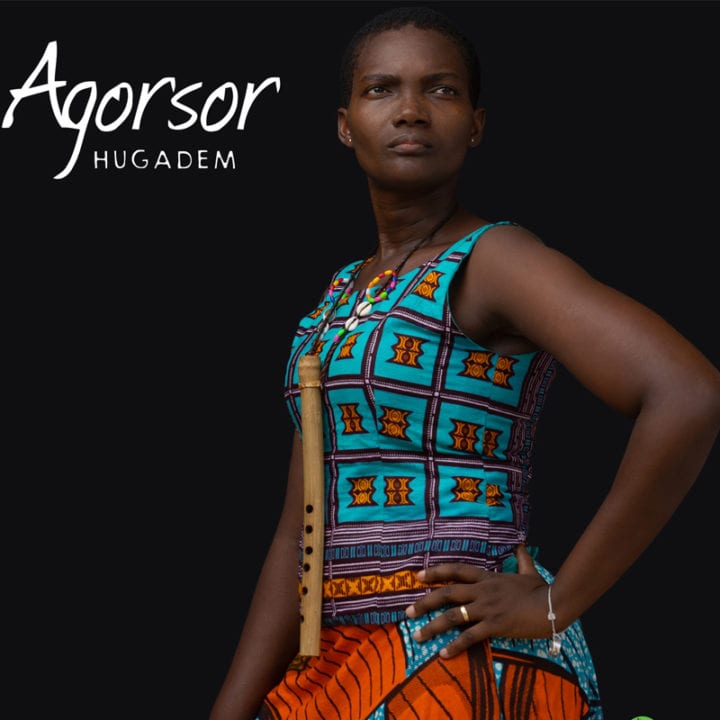
Hugadem cover artwork
Agorsor Releases "Hugadem" Album
Ghanaian Afrobeat and alternative band Agorsor presents their debut album, titled "Hugadem".
The Africa-rooted band makes high-energy, spirit-filled music, overflowing with free-flowing vocals, innovative instrumental harmonies and contagious rhythms, all inspired by the vibrant sounds and emotions of Africa.
The band is guided by graceful singer, fine artist and dancer Nyornuwofia Agorsor (vocals, songwriting), whose acrobatic voice and movements are enhanced by talented instrumentalists Kofi Agorsor (fine artist, songwriter, various instruments), Kofi Acheampong (percussion), Emmanuel “Chico” Napour (conga), Julius Quaye (gome) Magaret Selasi Gbindey (bvs) and Dzimesah “Yoga” Boku (compositions, xylophone, flute, gome, conga, gonje).
Together, they create magical world music with flavors of funk, Afrobeat, soul and jazz. Agorsor’s rich recordings show the band’s talent for experimenting with different styles and offer a blend of rare African percussion and acoustic instruments, with lyrics that tell wise stories about loss, love, suppression, expression, hope, discovery and the unending quest for understanding within African communities and around the globe.
SEE ALSO: Jayso - 0106 Vol. 5 (EP)
"Hugadem" is Agorsor’s debut album and is a collection of songs that celebrate the mysteries of the love and human connection to the spirit. Hugadem – which in English is “The Absolute is Married to Me” – is eight passionate original songs about the many complex dimensions of the concept of spiritual presence. It illustrates members’ journey as Africans and humans navigating the complex world around them and finding profound meaning in nature, God and others.
Agorsor was formed in 2000 and brought to life by the imagination of painter/sculptor, songwriter, composer, arranger and performer Kofi and painter, songwriter, dancer and multi-instrumentalist Nyornuwofia.
Agorsor performs regularly at many local and international events, forging genuine connections with audiences through multi-disciplinary performances that connect cultures and inhabit both the natural and supernatural universe. The group’s joyful live performances combine music with dance and visual art, showing the power songs have to transform the soul. "Hugadem" was written and crafted at the band’s live recording studio in Accra, a sacred space that continues to give the band the freedom to explore new musical territory. The album was released on the self-titled label, Agorsor Records, which was formed in March 2018.
Check out the album below!
The post Agorsor - Hugadem (Album) appeared first on Latest Naija Nigerian Music, Songs & Video - Notjustok.
from Latest Naija Nigerian Music, Songs & Video - Notjustok
via EDUPEDIA
Comments
Post a Comment